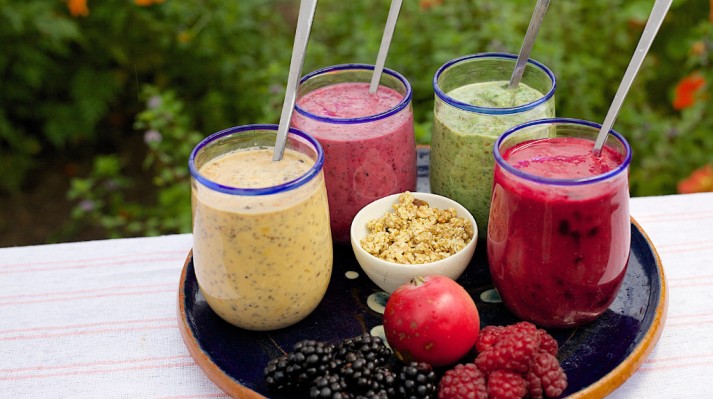After having a sleeve gastrectomy, gastric bypass surgery (also called Roux-en-Y gastric bypass), or another type of bariatric surgery, a post-bariatric surgery diet can help you heal and learn new ways to eat for the rest of your life. A bariatric nutritionist will guide you on the diet you need to follow post-surgery. They will tell you what and how much to eat. If you stick to your post-bariatric surgery diet, you can safely lose weight and keep it off for a long time. This information will walk you through each step of what to do after having a bariatric surgery.
Understanding Bariatric Surgery and Its Impact on Nutrition:
There are several popular bariatric procedures, and each has its benefits. Let’s learn in depth about bariatric surgery.
Gastric Bypass (Roux-en-Y): This procedure makes a small pouch in the stomach and reroutes part of the small intestine to stop the intake of calories.
Sleeve Gastrectomy: About 75–80% of the stomach is removed, which limits what you can eat and changes the hormones that control your hunger.
Adjustable Gastric Band: An adjustable gastric band uses a flexible band to make a small pouch around the upper stomach. This method isn’t used as much these days.
All these procedures shrink the stomach to improve its function, and some even skip parts of the gut. Because of this restriction and malabsorption, specific dietary plans are needed to meet nutritional goals in much smaller amounts.
Why Is Diet Crucial Post-Surgery?
After surgery, the stomach and digestive system undergo significant changes very quickly.
- Eating enough food aids in the healing of the surgical site and prevents the occurrence of leaks and infections.
- Keeps you from getting dumping syndrome, which is a bad reaction to high-sugar or high-fat foods that enter the small intestine too quickly.
- Make sure you get enough protein, vitamins, and minerals even though your meals are much smaller.
- Post-bariatric surgery diet helps to address the long-term deficiency of crucial nutrients such as calcium, iron, vitamin D, and vitamin B12.
- Sticking to a healthy post-bariatric surgery diet is important for keeping off the weight, keeping muscle strength, and protecting your health as a whole.
Phases of the Post-Surgery Diet Plan
In the post-bariatric surgery diet, there are several diet phases. Below are each of the phases and the foods to include during that phase
Phase 1: Clear Liquids (1–2 Days Post-Op)
Getting enough water and rest is important right after surgery:
- Broths (chicken or veggie with low salt)
- Herbal drinks that don’t have caffeine
- Gelatin without sugar
- Drinks that replace electrolytes
- Aim for small sips often to keep from getting dehydrated. Stay away from sweeteners, alcohol, and caffeine that could make you sick.
Phase 2: Full Liquids (Week 1–2)
Once clear drinks are tolerated, try slightly thicker options:
- Shakes with added protein (20–30 g protein per serve)
- Low-fat or skim milk
- Stews or soups that have been pureed
- Smoothies made with fruit and protein powder (no skins or seeds).
- Drink small amounts of water throughout the day, but avoid drinking much 30 minutes before or after meals to ensure your stomach has enough room for nutrients.
Phase 3: Pureed Foods (Week 3–4)
Change to uniform, smooth textures that won’t put too much stress on the stomach while it heals:
- Lentils that have been blended with broth
- Low-fat yogurt that is smooth
- Cooked veggies that have been pureed (carrots, sweet potatoes)
- Eggs, mashed or blended
- Aim for 60–80 g of protein per day and make protein the main ingredient at every meal. Incorporate sauces and spices slowly.
Phase 4: Soft Foods (Week 5–6)
Start eating and enjoying more solid foods while keeping the textures that are easy to digest:
- Fried or soft-boiled eggs
- You can have ricotta or cottage cheese
- Flaked white fish or soft chicken that has been steamed
- Veggies that are soft-cooked, like zucchini and spinach
- Wait at least 30 seconds between bites and make sure you chew each one well. Stop eating when you’re full, not stuffed.
Phase 5: Regular Diet (After 7–8 Weeks)
Most people can eat a wider range of foods two months after surgery:
- Chicken breast, turkey, lean beef, and tofu are all lean foods.
- Veggie skins that are cooked or steamed but not tough
- Fruits that are soft, like bananas, peaches, or canned pears
- Whole carbs like oatmeal, quinoa, and brown rice in small amounts
- Avoid foods with extra sugars, fried foods, and a lot of fiber. The portions should remain small, about ½ to 1 cup per meal.
Nutritional Focus Areas
Including necessary nutrients in each meal is important since the meals are small. These are the essential nutrients that you should include in your diet.
Protein Intake: Protein is an important part of repairing tissues, feeling full, and keeping muscles healthy. The daily goals run from 60 g to 100 g, but they are different for each patient. Some reliable sources of protein are:
- Lean Meats: Chicken, turkey, and fish.
- Plant-based: beans, tofu, and tempeh
- Dairy: Cheeses like cottage cheese and Greek yogurt
- Supplements: Whey or plant-based protein powders.
Hydration: When you switch from a liquid to a solid meal, your body needs more fluids. Drink at least two and a half liters of water every day. Here are some ways you can make sure to be hydrated throughout the day:
- Sip small amounts all day long.
- Use a reusable water bottle.
- If plain water gets boring, add pieces of cucumber or citrus to it to make it taste different.
- To avoid getting full too quickly, don’t drink for 30 minutes before or after a meal.
Vitamin and Mineral Supplements: Because of decreased intake and poor digestion, it is necessary to take supplements:
- Multivitamin: Daily chewable or capsule form.
- Vitamin B12: Sublingual or injection, per physician’s orders.
- Calcium citrate with Vitamin D: 1,200–1,500 mg calcium daily.
- Iron: Especially important for menstruating women; take away from calcium to improve absorption.
- Follow your dietitian or nutritionist’s protocol and have labs checked every three to six months.
Foods to Avoid After Bariatric Surgery:
Carbonated beverages (gas cells, discomfort)
Sugary sweets, candies, and syrups (dumping syndrome)
Fried and high-fat foods (poor digestion, weight stall)
Tough meats (steak, pork chops) and fibrous vegetables (corn, asparagus) in the early phases
Nuts, seeds, popcorn (choking hazard and poor tolerance)
Caffeinated drinks (initial months)
Alcohol (absorption changes increase intoxication risk)
Sample 1-Day Post-Surgery Meal Plan (Soft Food Stage)
Breakfast
Scrambled eggs with a side of mashed avocado
Snack
Low-fat Greek yogurt with a sprinkle of cinnamon
Lunch
Steamed white fish with pureed carrots and peas
Snack
Protein shake (20–25 g protein) or cottage cheese
Dinner
Pureed lentils blended with wilted spinach
Hydration
Water or herbal teas sipped between meals, not during
Tips for Long-Term Success:
- Eat three small meals every day, and don’t go without food for long periods.
- Do not “graze.”
- If you get hungry in between meals, you can always plan on having snacks midday.
- Use a small plate to divide up your food.
- Eat foods that are high in protein.
- Don’t eat all at once. Take a thumbnail-sized piece of food at a time and chew it very well at least twenty times. Allow 20 to 30 minutes to finish your meal.
- Try to eat at a table or away from other people, and take a break between bites by putting your fork down.
- Don’t eat anything until you’re “full.” Overeating can enlarge your stomach pouch, causing pain and vomiting.
- Drink something 20 minutes before a meal, and don’t drink anything for at least 20 minutes after a meal.
- Try to drink between 1.5 and 2 liters of water every day.
- Avoid all kinds of fizzy drinks because they can make your stomach hurt, make you bloat, and stretch your small stomach pouch.
- Drinks, like smoothies, fruit juice, energy drinks, and milkshakes, have a lot of sugar, which means they have many calories. These drinks can make it harder for you to lose weight after surgery.
Get a Post-Bariatric Surgery Diet Plan From Experts
Having a nutrient-rich post-bariatric surgery diet is essential to losing weight and being healthy for a long time. Patients can set themselves up for long-term success by carefully following each phase of their diet and focusing on protein, hydration, and important supplements. Keep in mind that everyone’s journey is different. Working with a bariatric nutritionist can help you get the greatest results.
Qua Nutrition is one of the best nutrition clinics. We focus on personalized meal programs, sports nutrition, weight management, and clinical nutrition. Our skilled dietitians for bariatric care create personalized post-bariatric programs that combine scientific advice with support to help you succeed at every stage of your health journey. Contact us to book an appointment with the experts.









